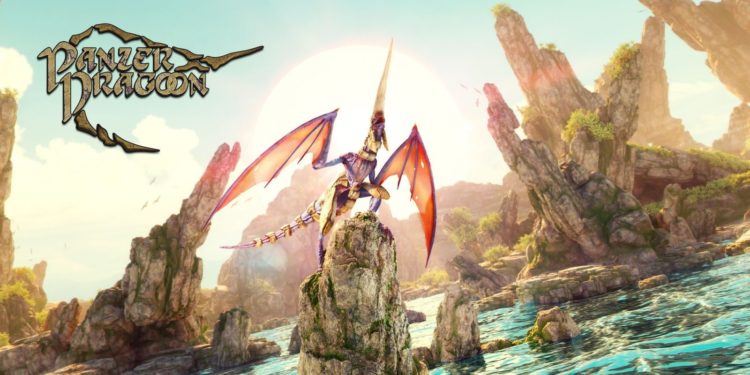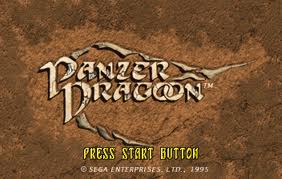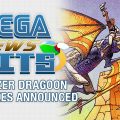 According to the Polish blog Strefain, Forever Entertainment was surprised at how positive a reaction the gameplay of the Panzer Dragoon Remake got at Nintendo’s E3 stage show. The article does mention some good tidbits of information including that the company wants to release a remake (seems they want to be a company known for remakes of classic IPs) every 12 to 18 months. The company has also confirmed that Panzer Dragoon II: Zwei is already in production.
According to the Polish blog Strefain, Forever Entertainment was surprised at how positive a reaction the gameplay of the Panzer Dragoon Remake got at Nintendo’s E3 stage show. The article does mention some good tidbits of information including that the company wants to release a remake (seems they want to be a company known for remakes of classic IPs) every 12 to 18 months. The company has also confirmed that Panzer Dragoon II: Zwei is already in production.
One troubling note within the article is that the developer MegaPixel Studio has said to have a small budget and that they need to sell units from the production to start earning profits, but didn’t say how money units they needed to sell. They did confirm that Panzer Dragoon Remake is suppose to be shipped before March 2020, at least that is the plan. It seems some sites posted it was coming this winter because of a fake pre-order. We also found out that Panzer Dragoon Remake will be getting a physical release. As of right now its only on the Nintendo Switch, but the company didn’t say it was exclusive.
Outside of that it does say that Forever Entertainment is preparing a trailer with fan reactions.






PC/PS4/XONE and I’m sold
I don’t own a Switch and don’t intend to support Nintendo
Can’t say I’m all that interested as much as I would be if comes to the X1 at least, even though it’s still good to see them at least so something with the franchise in years.
Sick fed up with Nintendo hardware been dedicated for all these prime exclusives when there is no good reason, Switch already has the entire Sega Ages platform software series exclusive.
As well as the Bayonetta series, which is a Sega AAA IP, to be honest, Sega should delve more into making their titles multiplat, including the Yakuza series, it could raise the profile of Sega considerably and put them in the same league as big players like Ubisoft, Rockstar and Capcom in terms of their high calibre yearly instalments.
How Sega benefits from exclusives unless they were to come out with a follow up to the Dreamcast, doesn’t make a lot of sense.
Well Bayonetta is now pretty much a joint IP. Bayo 2 and 3 wouldn’t even exist without Nintendo. So if you’re mad at that, be mad at Sony and Microsoft for telling them no before they went to Nintendo. There’s something you have to realize about exclusives from third parties. Most, if not all of them, are subsidized by the console maker. Sometimes it’s actual development like Bayo 2/3. Sometimes it’s for a timed exclusivity. Sometimes it’s for a permanent one. So if Sony pays Sega X amount to keep Yakuza on their platforms, that means they are paying Sega what they would have made on Xbox or the Switch. Then there are some that the developers just enjoy making games under a particular architecture. Sega isn’t losing money, no worries.
Exactly, a ‘joint IP’ this is not a good thing, it doesn’t give Sega full control over it which means they can never remaster the rest of the series, and all but the first will be locked exclusively to hardware with a Nintendo logo on it. Hardly a good thing for what is SEGA IP.
That’s why they can’t touch Bayonetta 2 and 3 after giving the first Bayonetta an excellent 60fps remaster using the PC.
About exclusives, I think you are confusing second party companies with third party companies.
A first party is exclusively restricted and locked to a certain platform, first party studios are those that are part of another company internally, i.e., like Sonic Team, AM2 and Run Ga Gotoku studios which have always been integral parts of Sega as a publishing house, and so another word we call them is ‘in-house’ – as in they are within SEGA and part of Sega itself.
A second party is a company or studio that is outsourced and not directly related to the company they are working with and for, but they do so exclusively with that said company and no other, it’s essentially like a contract company, these would be companies like Sumo Digital, Creative Assembly, SI (Sports Interactive), Relic Entertainment, Level 5, Forever Entertainment and Game Freak ect. They are basically like hired hands and are given core assets, funding and R&D duties by the said company that gives them specific contractual agreements on what they are looking for, they may even work directly with them by having some of their own people work directly with the second party to supervise and oversee the project.
A third party is a completely independent company that has full control over all their own affairs, their publishing, their funding and R&D operations, they can decide where and when to do what and where based on their own wishes and best interests. Though they can also agree with companies to have timed exclusives, but they have to be willingly in agreement with it by their own agency if they are offered an offer.
It’s worth nothing overall that Sega in particular is a mix between a 1st party company and a 3rd party company that uses 2nd party companies only in the home sector of the industry, in the arcade sector, they produce their own exclusive hardware consoles which other companies with arcade backgrounds like Capcom, Taito and Tecmo ect have used before, for example Capcom’s Power Stone series was natively written and developed on SEGA’s NAOMI console hardware and Tecmo’s Dead or Alive was originally natively developed on the SEGA Model 2 arcade console.
@Hawk
Exactly, a ‘joint IP’ this is not a good thing, it doesn’t give Sega full control over it which means they can never remaster the rest of the series, and all but the first will be locked exclusively to hardware with a Nintendo logo on it. Hardly a good thing for what is SEGA IP.
That’s why they can’t touch Bayonetta 2 and 3 after giving the first Bayonetta an excellent 60fps remaster using the PC.
About ‘exclusives’, I think you are confusing second party companies with third party companies.
For example, a first party is exclusively restricted and locked to a certain platform, first party studios are those that are part of another company internally, i.e., like Sonic Team, AM2 and Ryu Ga Gotoku studios which have always been integral parts of Sega as a publishing house, and so another word we call them is ‘in-house’ – as in they are within SEGA and part of Sega itself.
A second party is a company or studio that is outsourced and not directly related to the company they are working with and for, but they do so exclusively with that said company and no other, it’s essentially like a contract company, these would be companies like Sumo Digital, Creative Assembly, SI (Sports Interactive), Relic Entertainment, Level 5, Forever Entertainment and Game Freak ect. They are basically like hired hands and are given core assets, funding and R&D duties by the said company that gives them specific contractual agreements on what they are looking for, they may even work directly with them by having some of their own people work directly with the second party to supervise and oversee the project.
A third party is a completely independent company that has full control over all their own affairs, their publishing, their funding and R&D operations, they can decide where and when to do what and where based on their own wishes and best interests. Though they can also agree with companies to have timed exclusives, but they have to be willingly in agreement with it by their own agency if they are offered an offer.
It’s worth noting overall that Sega in particular is a mix between a 1st party company and a 3rd party company that uses 2nd party companies only in the home sector of the industry, in the arcade sector, they produce their own exclusive hardware consoles which other companies with arcade backgrounds like Capcom, Taito and Tecmo ect have used before, for example Capcom’s Power Stone series was natively written and developed on SEGA’s NAOMI console hardware and Tecmo’s Dead or Alive was originally natively developed on the SEGA Model 2 arcade console.
Unless if hits XB1 or PC I won’t be buying it.
“The company wants to release a remake every 12 to 18 months.”
Translation not withstanding, I wonder if this can be interpreted in two ways. Optimistically, they could be saying that this is where they would like to be in the future. Alternatively, this can mean there’s at least one person there who wants to pick up an entire gallon of ice cream using a pea-sized spoon. Hoping it’s the former and not the latter, but in this industry you never know.
I’m hoping it’ll arrive on other platforms, but I’m not as opposed to buying a Switch just for this game. Happened with the last Panzer Dragoon game and I didn’t regret it that time.
It’s a detail, but the blog’s name is “Strefa Inwestorów” (which means “Investor Zone” in Polish), not “Strefain”. Just wanted to let you know.
Fantaxtic website. A lot of useful info here. I am sennding it to several friends
ans additionally shring in delicious. And naturally, thanks in ykur effort!
Seriously, the blog you cited as a source states twice that the plan is to release in winter 2019. It only talks about the fraudulent preorder site after saying “The game will be released in winter, but the company does not provide an exact deadline. We only know that this is to take place up to March 2020 of the year.” The date was not from some fake website. It’s even listed as winter 2019 on Nintendo’s official page.